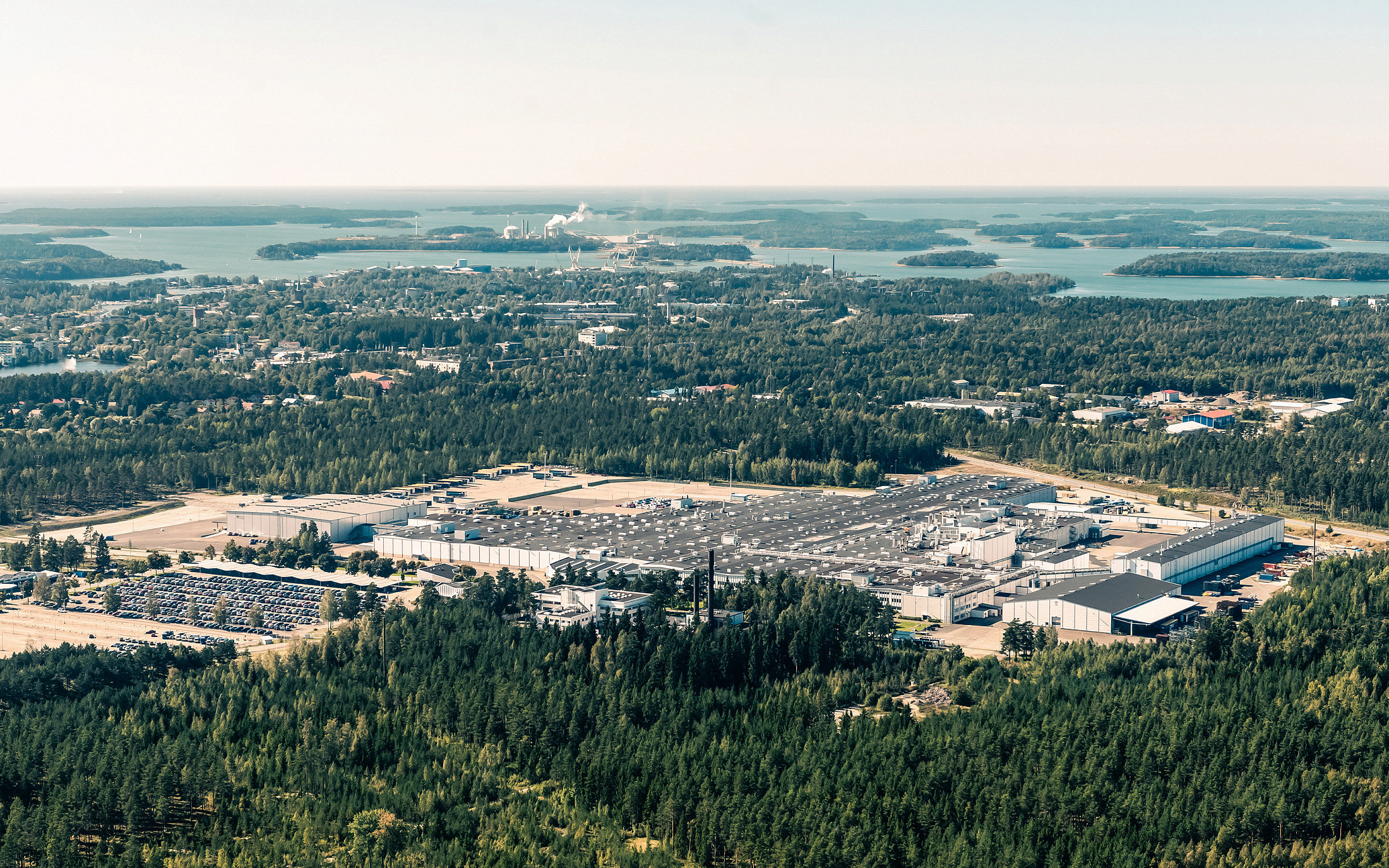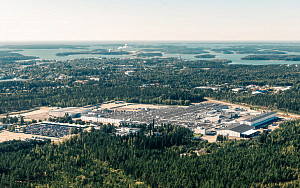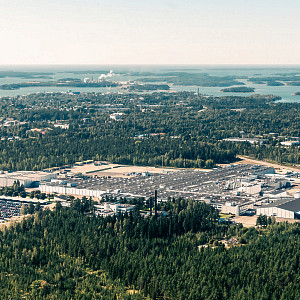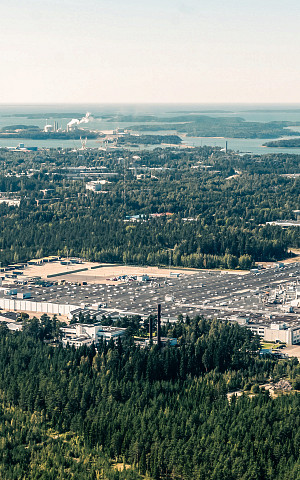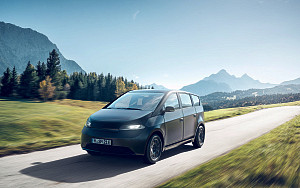Sono Motors and Valmet Automotive Announce the Signing of a Term Sheet Concerning the Production of the Sion Solar Electric Vehicle (SEV) At Valmet Automotive’s Production Line in Uusikaupunki, Finland.
The Contract Manufacturer, With Long Experience in Production for Premium OEMs, Will Provide Production Capacity for 257,000 Cars Within 7 Years.
Start of Production Planned for the Second Half of 2023.
Funding Needs Increase.
Due to Increased Manufacturing Costs, the Sion Will Be Priced at €25,126 Net in the Future. The New Price Will Be Valid From 18,500 Reservations Onwards. All Existing Reservations Remain Priced as Before.
Valmet Automotive Is One of the World’s Most Sustainable Contract Manufacturers and Certified Carbon-Neutral as of 1 January 2022.
Sono Motor’s Munich Headquarters Continues to Be the Sole Development Hub for Sono Solar Technology
Munich, Germany / Uusikaupunki, Finland, 5 April 2022 – Sono Motors (subsidiary to “Sono Group N.V.”, NASDAQ: SEV) and Valmet Automotive today announced the signing of a binding term sheet, specifying all substantial parameters regarding the collaboration and the production of the Sion solar electric vehicle (SEV). The Finnish contract manufacturer will produce the Sion at its plant in Uusikaupunki. Valmet Automotive will provide the capacity to produce more than 257,000 vehicles over a seven-year period.
“The cooperation marks another milestone towards delivering the Sion to our growing Community. We are convinced that collaborating with such a reliable and experienced partner is an excellent match for bringing the Sion to the streets, while securing high quality standards. We value Valmet Automotive's experience in manufacturing premium automobiles and their proven track record in electro mobility,” says Laurin Hahn, CEO and co-founder of Sono Motors. “Together we are well positioned to keep our promise and deliver a climate-neutral Sion to our customers.”
“The cooperation with Sono Motors is a perfect fit with Valmet Automotive’s strategy, capabilities, and sustainable approach in all operations. We have been pioneers in electric vehicle manufacturing since 2009, and the innovative solar electric Sion will take us to the next level as the first high-volume, fully electric vehicle to be produced in the Uusikaupunki plant. In the rapidly changing automotive industry, Sono Motors is a leading exponent. We are looking forward to supporting Sono Motors in their electromobility targets,” says Olaf Bongwald, CEO, Valmet Automotive.
The Partnership Aims to Produce 43,000 Vehicles Per Year
Valmet Automotive started car manufacturing in 1968 as a joint venture with Saab. Since then, the company built more than 1.7 million cars as a contract manufacturer for some of the world's leading OEMs. General price increases, the switch to Valmet Automotive and the development of new production lines will lead to increased funding needs of at least €275 million (including expected cash inflow from advance payments from reservations) by the start of production (SOP) in the second half of 2023. The Valmet Automotive facilities in Uusikaupunki allow for the production of a low four-digit volume in 2023, which will be followed by a ramp-up period. After this period, which will likely take a few months, the partners aim to produce approximately 43,000 Sion a year, using one hundred percent renewable energy. Sono Motors currently expects that all production-related greenhouse gas emissions that cannot be avoided along its supply chain, or during the production process of the vehicles, will be fully offset through relevant measures. Valmet Automotive is one of the world’s most sustainable contract manufacturers and is certified as carbon neutral as of 1 January 2022.
Adjusted Prices for New Customers Due to Market Development
As of 31 March 2022, the Sion has over 17,000 direct consumer reservations with an average down payment of €2,390 net. Currently priced at €23,950 net, the company is planning to increase the car’s estimated net price before taxes and subsidies to €25,126 (€29,900 including German VAT) when the reservation number has reached 18,500. Sono Motors is thereby reacting to the latest increase in manufacturing costs, due to higher prices for production facilities and supplier components as well as raw materials, energy, and logistics, whilst keeping current promised net reservation prices fixed. “By adapting our pricing according to the current economic environment, we are able to reflect our increased costs while continuing to offer our customers a completely sustainable SEV at a very attractive price.” says Thomas Hausch, Chief Operating Officer at Sono Motors.
Sono Motors is currently building a fleet of series-validation vehicles in Germany closer to the company’s HQ, ushering in the Sion's testing program. The outer shell of this family-friendly car will consist of 456 seamlessly integrated solar half-cells and will enable self-sufficiency on short journeys. The energy generated by the solar cells will extend the estimated 305 km range of the Sion's 54 kWh LFP battery by an average of 112 km (up to 245 km) per week. Commuters in metropolitan areas will have to charge their Sion up to four times less than conventional electric cars of the same vehicle class with a similar battery size. Bidirectional charging technology complements the car’s solar integration and is designed to turn the Sion into a sustainable power plant on wheels that will be able to power electronic devices, the home or other electric cars with an output of up to 11 kW.
ABOUT VALMET AUTOMOTIVE
The Valmet Automotive Group is one of the largest vehicle contract manufacturers in the world, Tier 1 systems supplier for convertible roof and kinematic systems and for battery systems. In its strategic development, Valmet Automotive Group focuses on electromobility with the development and manufacturing of battery modules as well as packs for electrified vehicles. The activities in the group are organized in three business lines: Manufacturing, EV Systems and Roof & Kinematic Systems. Since its founding in 1968, Valmet Automotive has produced more than 1.7 million vehicles at the Uusikaupunki, Finland plant. In Salo, near the Uusikaupunki plant, Valmet Automotive opened its first volume production of battery systems for the automotive industry in autumn 2019. The company has locations in Finland, Germany, and Poland. Valmet Automotive’s largest shareholders are state-owned Finnish investment company Tesi and the Pontos Group, each with a stake of 38.46 %. 23.08 % is held by the Chinese Contemporary Amperex Technology Limited (CATL), the world leading manufacturer of battery cells for electric vehicles.
FORWARD-LOOKING STATEMENTS
This press release includes forward-looking statements. The words "expect", "anticipate", "intends", "plan", "estimate", "aim", "forecast", "project", "target", “will” and similar expressions (or their negative) identify certain of these forward-looking statements. These forward-looking statements are statements regarding the Company's intentions, beliefs, or current expectations. Forward-looking statements involve inherent known and unknown risks, uncertainties, and contingencies because they relate to events and depend on circumstances that may or may not occur in the future and may cause the actual results, performance, or achievements of the Company to be materially different from those expressed or implied by such forward looking statements. These risks, uncertainties and assumptions include, but are not limited to (i) the impact of the global COVID-19 pandemic on the global economy, our industry and markets as well as our business, (ii) risks related to our limited operating history, the rollout of our business and the timing of expected business milestones including our ability to complete the engineering of our vehicles and start of production on time and budget and risks related to future results of operation, (iii) risks related to our unproven ability to develop and produce vehicles and with expected or advertised specifications including range, and risks relating to required funding, (iv) risks related to our ability to monetize our solar technology, (v) risks relating to the uncertainty of the projected financial information with respect to our business including the conversion of reservations into binding orders, (vi) effects of competition and the pace and depth of electric vehicle adoption generally and our vehicles in particular on our future business and (vii) changes in regulatory requirements, governmental incentives and fuel and energy prices. For additional information concerning some of the risks, uncertainties and assumptions that could affect our forward-looking statements, please refer to factors discussed under the caption “Risk Factors” in our final prospectus under Rule 424(b) filed with the U.S. Securities and Exchange Commission (“SEC”) on November 18, 2021 in connection with our initial public offering as such factors may be updated from time to time in our other filings with the SEC, which are accessible on the SEC’s website at www.sec.gov and on our website at ir.sonomotors.com. Many of these risks and uncertainties relate to factors that are beyond the Company's ability to control or estimate precisely, such as the actions of regulators and other factors. Readers should therefore not place undue reliance on these statements, particularly not in connection with any contract or investment decision. Except as required by law, the company assumes no obligation to update any such forward-looking statements.
Photocredit drone shot: © Lentokuva Vallas Oy
Sono Group N.V. (NASDAQ: SEV) is on a pioneering mission to accelerate the revolution of mobility by making every vehicle solar. Sono Motors’ disruptive solar technology has been engineered to be seamlessly integrated into a variety of vehicle architectures — including third-party OEM cars, buses, refrigerated vehicles, and recreational vehicles — to extend range and reduce fuel costs as well as the impact of CO2 emissions, paving the way for climate-friendly mobility.
